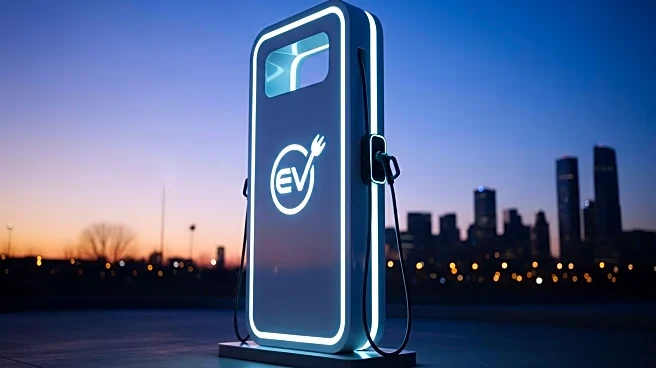What's Happening?
The $7,500 electric vehicle (EV) tax credit in the United States expired at midnight on September 30, affecting the competitive landscape for EV manufacturers. Tesla, which had previously benefited from this credit, is now poised to adjust its pricing strategy. Historically, Tesla has managed to boost sales by offering more affordable models, such as the Model 3, even without the tax credit. The company plans to leverage its manufacturing and technological efficiencies to maintain affordability and potentially introduce price cuts. This change comes as other manufacturers like Ford and General Motors, which have relied heavily on the tax credit to offset high production costs, may face challenges in maintaining their EV market presence.
Why It's Important?
The expiration of the EV tax credit could significantly impact the U.S. automotive industry. Tesla, which has been profitable without the credit, may gain a competitive edge as other manufacturers struggle with financial sustainability. The removal of subsidies could expose the financial vulnerabilities of companies like Ford and GM, potentially leading to a reduction in their EV efforts. This shift may benefit Tesla, as it highlights the company's ability to innovate and remain profitable independently. The situation underscores the importance of manufacturing efficiencies and cost management in the EV market, potentially leading to a more level playing field.
What's Next?
Tesla is expected to introduce more affordable models in the coming quarter, aiming to capture a larger market share without relying on tax credits. If Tesla can offer a model priced close to $30,000, it could undercut many existing EVs and attract a broader consumer base. The company's strategy will likely focus on maintaining its technological edge while enhancing affordability. Meanwhile, other manufacturers may need to reassess their strategies and cost structures to remain competitive in the evolving market.
Beyond the Headlines
The expiration of the EV tax credit may drive innovation as companies are pressured to improve affordability and efficiency without government support. This could lead to advancements in EV technology and production methods. Additionally, the shift may influence public policy discussions on the role of subsidies in promoting sustainable technologies and the balance between market forces and government intervention.








